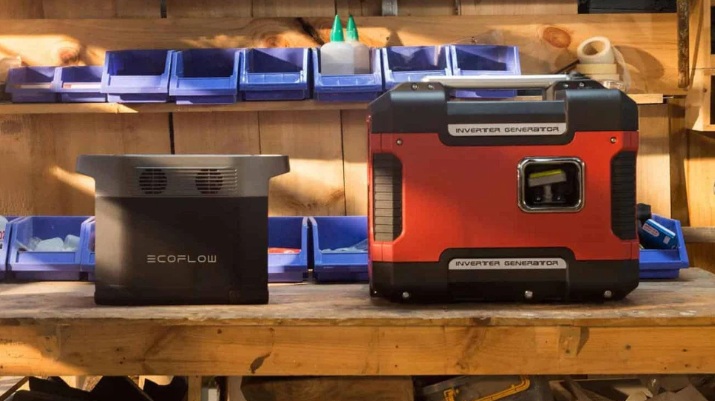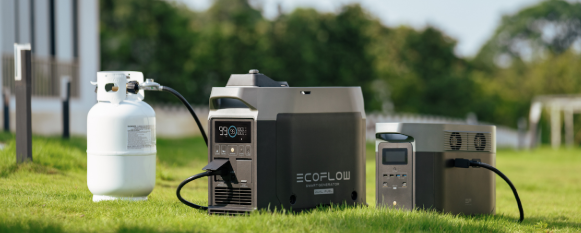How Much Does a Natural Gas Generator Cost?
Natural gas generators are becoming quite popular these days, and it's not hard to understand why. They perform great, are reliable, and don't cost that much to run. However, if you're considering purchasing one, you may be wondering: how much is this going to set me back? The question doesn't have a straightforward answer since the cost is based on so many variables, such as how powerful you want it, what brand you opt for, and how much the installation will cost you. Let's break it all down so that you know what you are getting yourself into.
Why Natural Gas Generators Are More or Less Expensive
When you're shopping for a natural gas generator, the price tag is only part of the equation. There are several things that will determine what you'll end up paying, and it's nice to know what they are before you start shopping.
How Much Power Do You Really Need?
This is probably the biggest determining factor that'll affect what you pay. Home generators usually provide anywhere from 3 kW to 25 kW, but those big commercial units can provide 100 kW or more. And more power, of course, means more money you'll be paying. A small home generator of 3 kW will cost anywhere from $500 to $1,500. A larger 10 kW generator will cost $2,000 to $4,000. If you are looking for a generator for a business or factory, expect to pay at least $5,000. It can get quite expensive as well, such as $10,000 or more, depending on your requirements.
Does the Brand Really Matter?
You can bet it does. Just like with cars or anything else you're paying a lot for, you're going to pay more for the name brands. Cummins, Kohler, and Generac are more expensive because they've been around a long time and have a good reputation. They tend to have better customer service and warranties, too.
You might be able to get cheaper products from brands that aren't as well-known, but you could be sacrificing quality and support down the road.
Installation Costs Can Be Very High
Don't forget to get that thing installed – it can add to your overall cost big time. If you're doing it at home, you could be adding $1,000 to $2,500 or more, depending on how complex it is. How far your generator is from the gas line, whether or not you need an automatic transfer switch, and what your local building regulations dictate all play a part in the overall cost.
Commercial installations are more expensive since they are more complex and may require significant alterations to your electrical system or building.
Home Generator Costs
The majority of individuals purchase natural gas generators as a backup in case the power fails. The following is what you can anticipate paying for its installation at home.
Small Home Generators
If you only need to power the essentials – lights, refrigerator, heating system – a smaller generator (3 kW to 10 kW) will suffice. The unit costs $500 to $4,000.
You can purchase a basic 3 kW generator for around $500. A 10 kW generator will be $2,000 or more. The important thing is to get the correct size for your requirements. Too small and you will not have sufficient power. Too large and you are wasting your money.
Extra Costs for Fancy Features
Some generators possess pleasant features that will make your life easier, yet you'll spend more on them. Automatic start (where the generator starts automatically when the power goes down) generally adds $500 to $1,000 to the price.
Wi-Fi capability means you can monitor and control your generator through your phone, which is very convenient. That feature typically costs $300 to $500 extra. Whether or not these additions are worth it depends on how much convenience you want.


Commercial Generator Prices
Companies require larger, more powerful generators that can handle heavy loads for an extended period.
What You Will Pay for Business Units
Commercial generators begin at 25 kW and increase from there. Small business generators tend to range from $3,000 to $8,000. Large industrial generators can cost easily $10,000 to $50,000 or more if you require special features such as noise reduction or extremely high efficiency.
Why Commercial Generators Cost More
Commercial generators are designed to work hard. They must operate for an extended period and carry larger loads, so they're constructed with higher-quality materials and components. Additionally, they usually include features such as remote monitoring and automatic load sharing, which are not included in home generators.
The installation is also more complicated, which adds to the labor cost.
The EcoFlow Smart Generator (Dual Fuel) is a versatile option that runs on gasoline and LPG. It supplies up to 1800W using gas or 1600W using LPG, and you can operate it using your phone. The dual fuel setup offers flexibility during emergencies, and the LPG option is more efficient with extended storage life. It features safety protections like carbon monoxide detection and works well with EcoFlow's DELTA power stations for longer runtime.
Can You Save Money Long-Term?
The initial cost may appear to be steep, but natural gas generators can actually save you money in the long run, particularly if you utilize backup power on a frequent basis.
Natural Gas Compared to Other Fuels
Natural gas is also cheaper than gasoline or diesel, and in most areas, it's easier to get. That means lower operating costs throughout the life of your generator. On top of that, natural gas burns cleaner, so you'll experience less maintenance and a longer generator life.
Keep Ahead of Maintenance
As with any machine, routine maintenance helps your generator run efficiently and avoids expensive repairs. Simple tasks like oil changes, replacing air filters, and gas line inspections go a long way in maintaining low costs and your generator running when you require it.
Financing Options
If you are not able to pay the total amount immediately, that is all right – you can split the payments.
Payment Plans
Most dealers provide financing plans that allow you to pay over a period of time. You may come across low-interest loans, leasing, or payment plans that allow you to postpone payments. The terms can run anywhere from 12 to 24 months or more.
The Real Cost of Financing
Keep in mind that financing will generally cost you more money in the long run due to interest. Be sure to calculate the total cost of financing compared to paying cash upfront to determine what is most convenient for you.


FAQ about Gas Generator
Q1. How Much Does a Home Generator Cost?
The cost of a house generator may vary with respect to the size and features of the device. You may spend as little as $500 on a small 3 kW generator, while a large 10 kW model may cost up to $4,000 or more. Including features like automatic start or Wi-Fi capability may add a lot of money to the price tag. You must weigh your requirements and budget first before you buy it because the initial price may vary depending on the model and the size of the model.
Q2. Are There Any Additional Costs?
Yes, there are additional expenses to purchasing a home generator. Installation will vary from $1,000 to $3,000, depending on how complex the installation is and which generator you choose. You'll also need to factor in maintenance expenses such as oil changes, filter replacements, and the cost of fuel to run the generator. These expenses will accumulate over the years, so you'll need to be comfortable with the long-term monetary investment.
Q3. What is the Cost of Installation?
The installation cost for a home generator usually ranges from $1,000 to $2,500, depending on your location and the generator type. This includes connecting the generator to your house electrical system and preparing it for efficient and safe use. In case there is additional work to be performed at your house, such as trenching to bury wiring or electrical panel upgrading, the installation cost could be more. Commercial installations, particularly for larger or commercial-sized generators, may entail more complex adjustments and typically are significantly higher in price.
Q4. How Long Do These Generators Last?
A well-maintained natural gas generator will survive 15 to 30 years. With good care, such as oil changes, changing air filters, and making sure the gas lines are in good shape, you add a lot to the life of the unit. While the upfront price tag might seem hefty, the long-term life span makes it a good investment, especially for areas that suffer from regular power failure. Neglecting to take care of the equipment will shorten the life of the generator and lead to higher, costly repairs down the road.
Q5. Is It Worth Buying One?
If you live in a place where there are frequent power outages or unreliable weather conditions, a home generator is a good investment. It gives you a reliable backup power source, reduces downtime for loss of power, and offers peace of mind. In addition, the fuel savings during crises and being able to use electricity at all times can be a worthwhile purchase economically over the time period. It's especially convenient for keeping critical appliances running when the grid fails.
Q6. Do They Require Special Maintenance?
Yes, there is ongoing maintenance needed to keep your home generator running correctly. This will include routine oil changes, changing air filters, and inspecting the gas lines and fittings. Depending on the model and usage, the generator may need additional maintenance like battery replacement and fuel stabilizer in storage. Maintenance keeps the generator from breaking down, makes it more efficient, and can extend the life of the generator. If you are unsure of the maintenance timing, it would be best to refer to the manufacturer's manual or have a professional perform the service.
Conclusion about How Much Power You Need
Natural gas generator prices can vary widely based on how much power you need, what brand you buy, and how difficult the installation will be. For a house, you're looking to spend $500 to $4,000 for the generator itself. Commercial units can easily cost $10,000 or more. While the upfront price may be high, the savings over time on fuel and maintenance, combined with the reliability, make natural gas generators a worthwhile investment. Whether you're powering your home or business, take the time to figure out exactly what you need and look into financing options if the upfront price is too prohibitive.
For press requests or interview opportunities, reach out to our media team
media.na@ecoflow.com